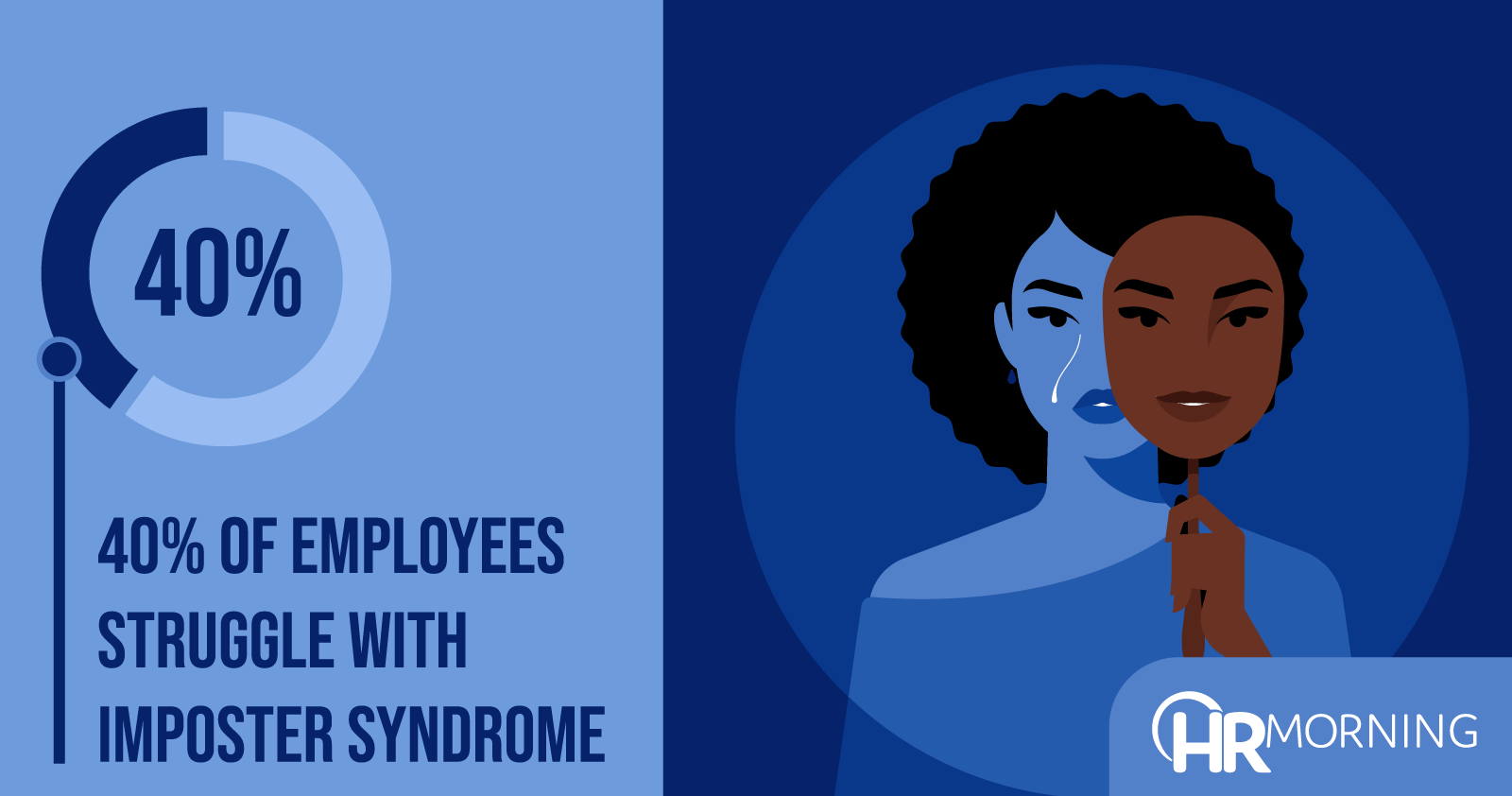We’ve all felt a little out of our depths at work from time to time – whether you’re feeling unqualified for the work you’re doing or getting the dreaded Sunday Scaries, the occurrence of imposter syndrome and feeling anxious at work is rising.
COVID-19 and the volatile state of the world have made employees’ mental health decline – and new research suggests work-related anxiety is increasing. A whopping 40% of survey respondents said they struggle with imposter syndrome – “a collection of feelings of inadequacy that persist despite evident success” – according to the “Voice of the Workforce” report from isolved for 2022-23, and 50% report feelings of “Sunday Scaries” when returning to work after time off.
As employees look to try to mitigate feelings of anxiousness, employers need to look at what they can do to help employees get into a healthy mindset to stay productive at work to avoid disengagement and turnover.
How to support employees struggling with work-related anxiety
Although one size does not fit all, there are several things you can do to help employees who may be struggling with this type of anxiety.
Check-ins with managers
Fifty-two percent of respondents indicated that regular check-ins with their manager would help them overcome their imposter syndrome. In a busy and increasingly remote world, it can be hard to find the time on your calendar to meet with team members, but the survey results show that increased communication is essential to helping employees feel secure and comfortable with the work they’re doing.
Regular check-ins also give you a chance to celebrate and highlight employee accomplishments – something 40% of respondents said would help them overcome their imposter syndrome. At check-ins, managers should create and stay connected on concrete employee goals to help keep them accountable.
Regular check-ins have many other benefits, such as:
- Ensuring that goals are being met
- Keeping the line of communication open for any concerns, and
- Building trust and rapport with employees.
Increased autonomy
It should come as no surprise that micromanaging and a lack of autonomy lead to work anxiety and feelings of imposter syndrome. Forty-three percent of respondents reported that increased autonomy within their role would help them with their imposter syndrome.
Giving employees autonomy can help them feel more engaged and help build leadership skills. Letting employees know you trust them enough to complete their tasks without those pesky micromanaging habits can help them learn to trust themself and be confident in the work they’re doing, thereby reducing feelings of imposter syndrome.
Employee resource groups
Thirty-seven percent of employees said that employee resource groups (ERGs) would help alleviate feelings of imposter syndrome. These support groups can help employees feel connected to each other and help them find common interests as well as share support for one another.
Fifty-nine percent of employers in the survey already offer ERGs, with diversity, equity, inclusion and belonging support groups being the most common type of ERG.
Other topics that employees expect employers to have ERGs for are:
- Women (38%)
- Mentorship (38%)
- Disability (33%)
- People of color (33%), and
- LGBTQIA+ (29%).
Connection and support
Staying connected with employees and offering support when needed can help alleviate feelings of anxiety. You may want to try these support techniques – whether you’re in HR, a manager or even just a supportive co-worker:
- Encourage a growth mindset
- Admit when you don’t know something, and
- Ask questions to encourage employees to challenge their own thinking.



